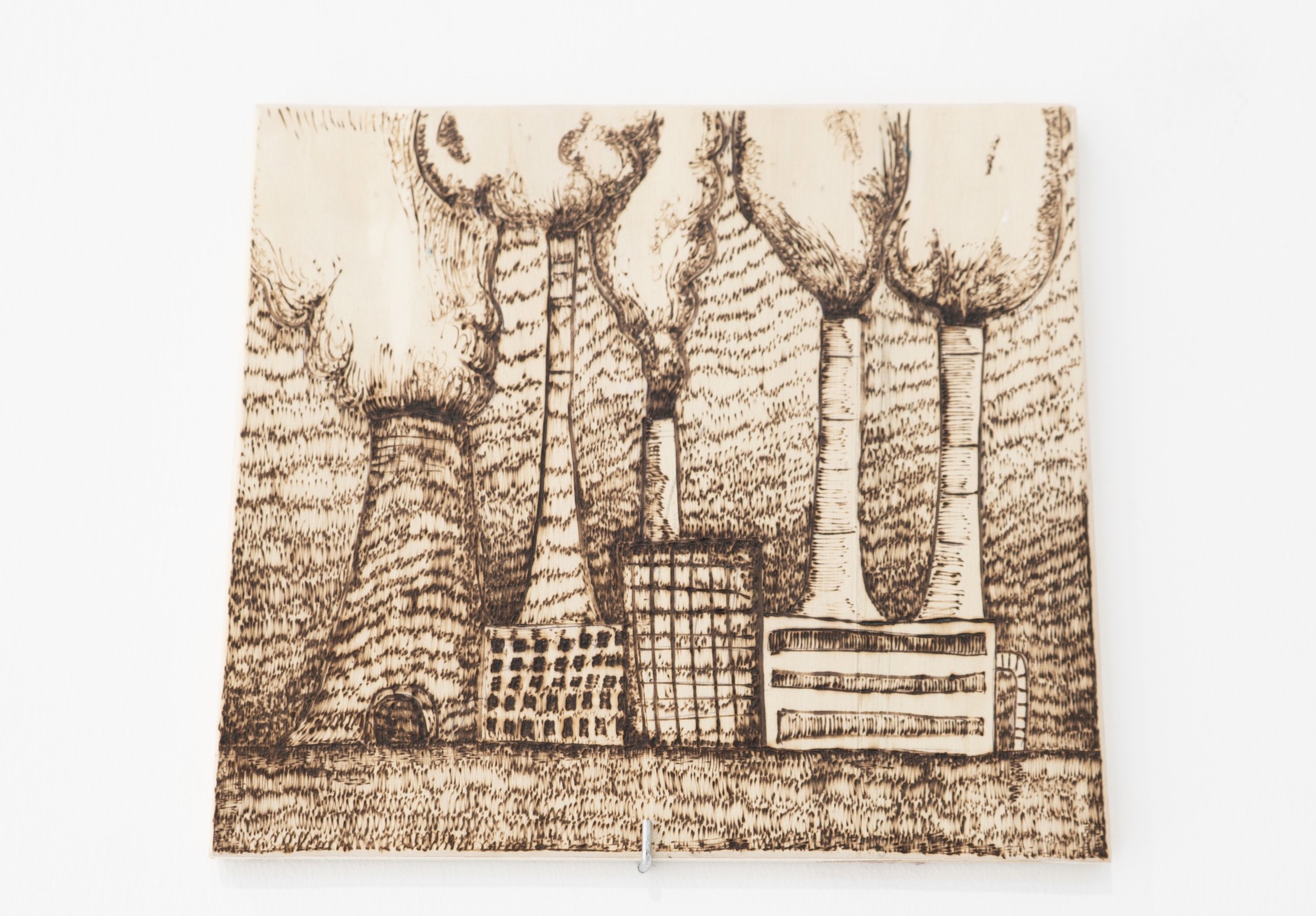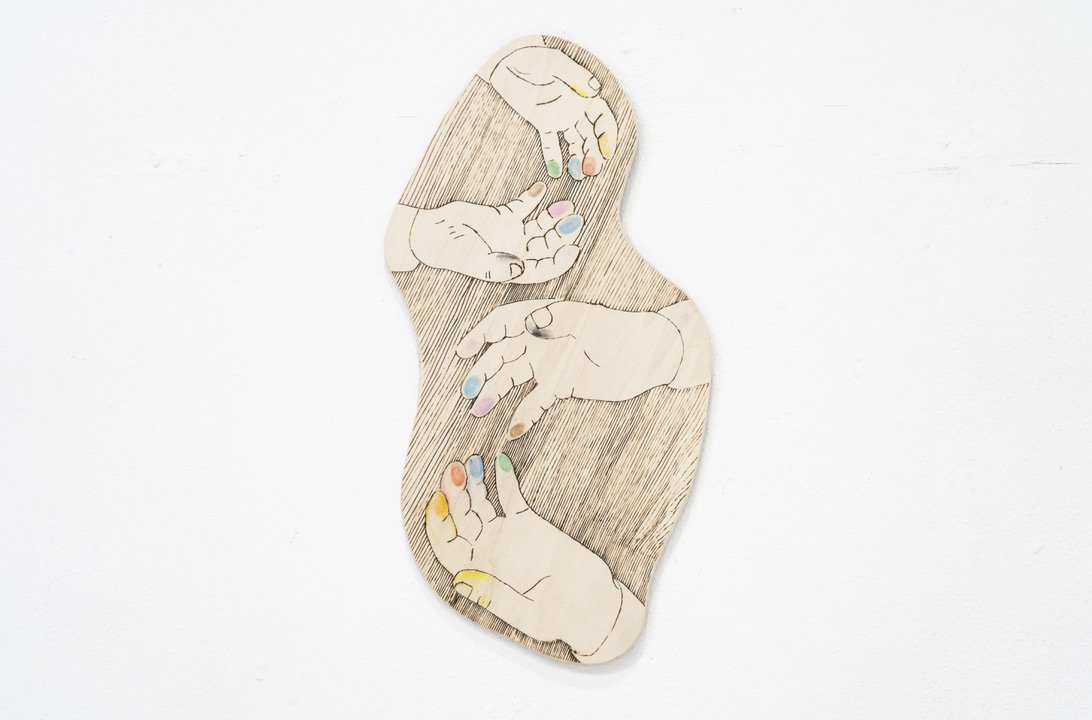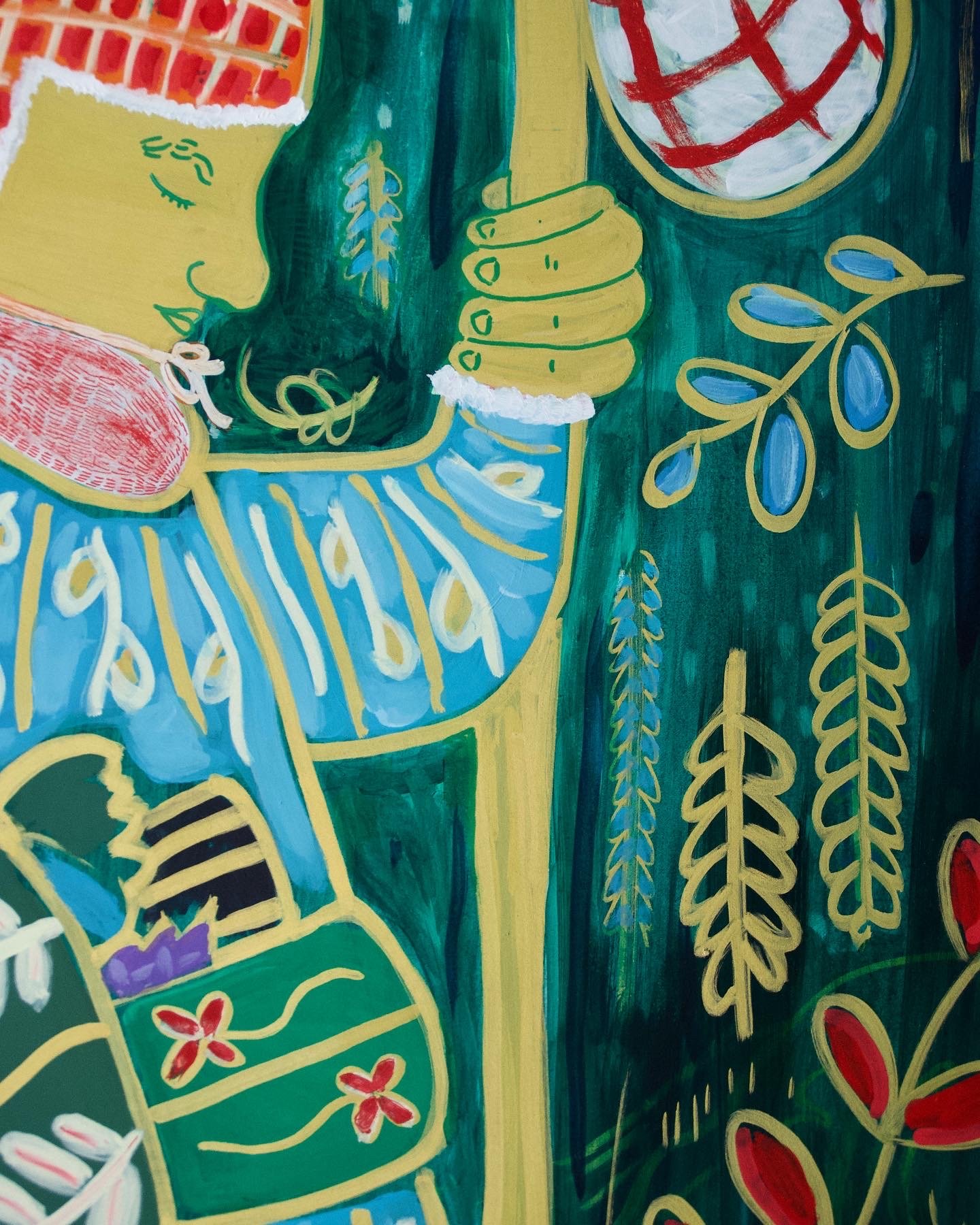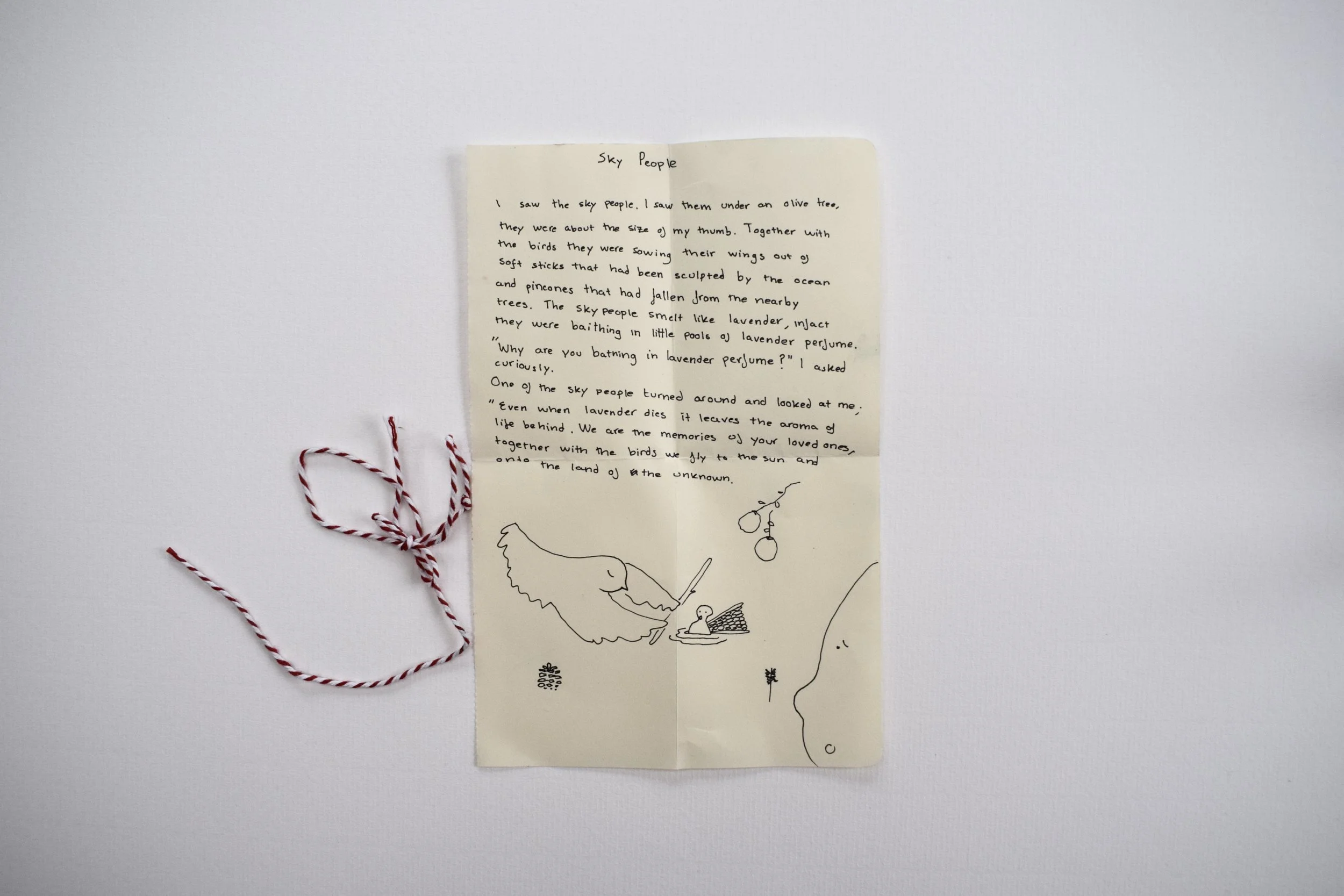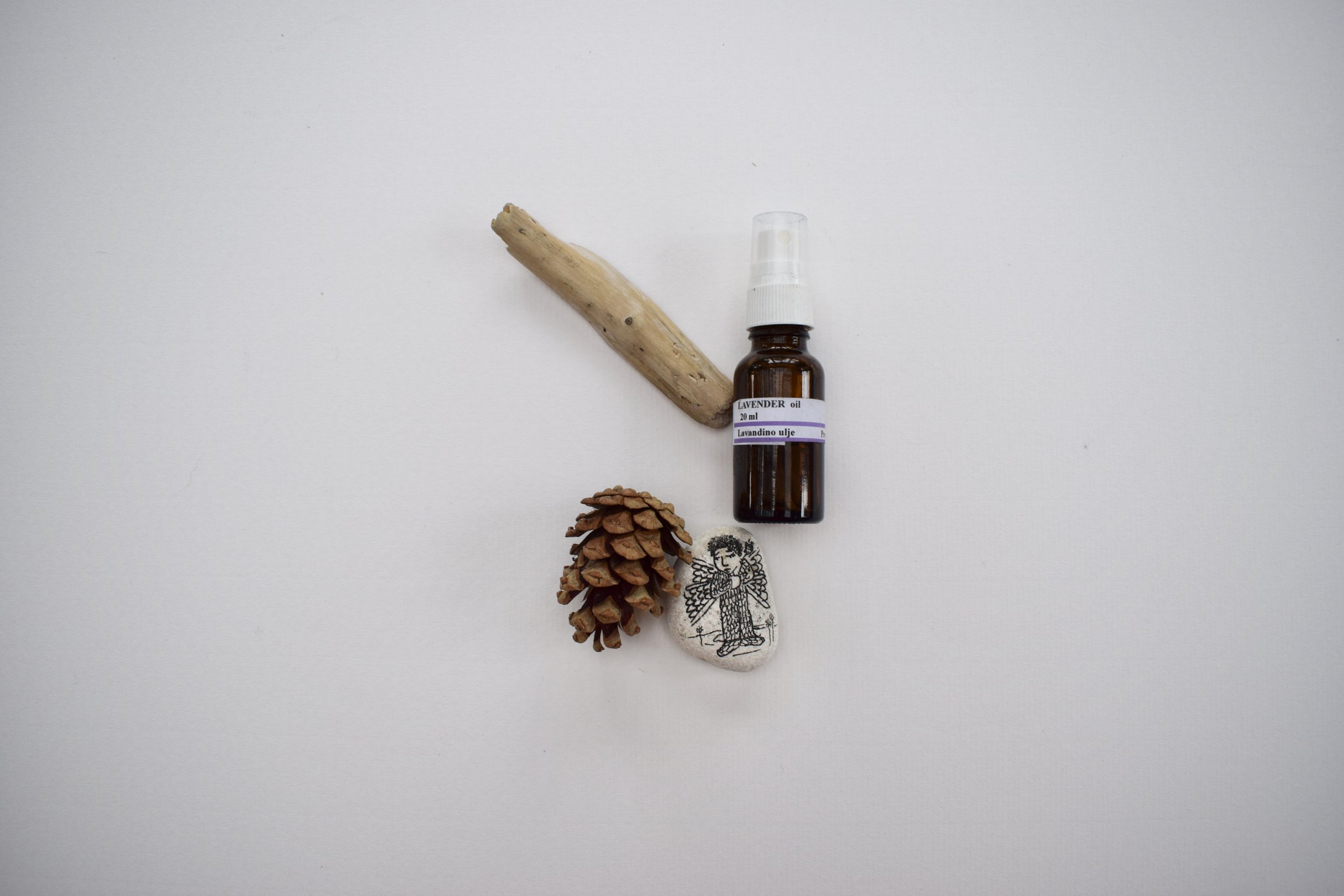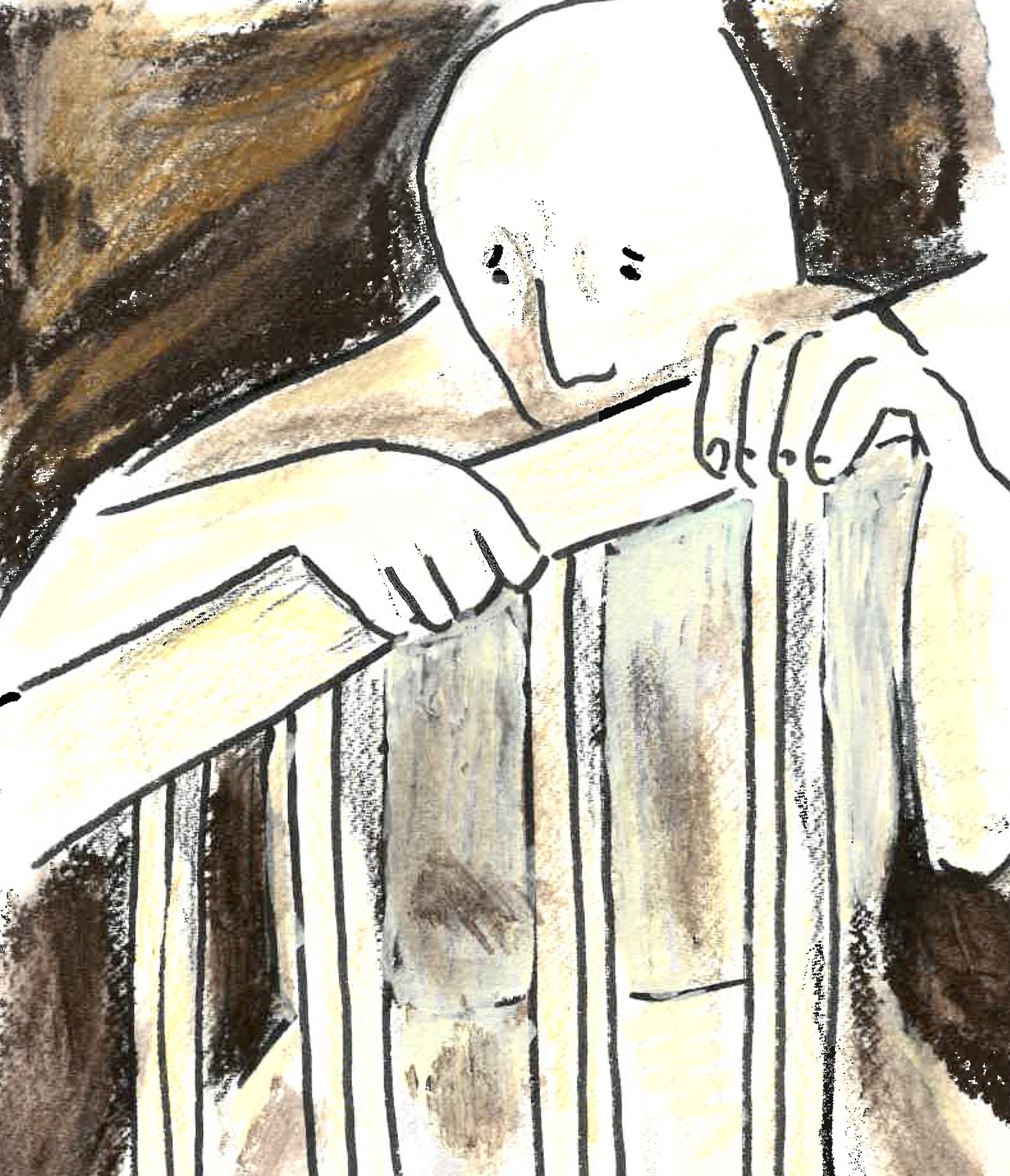BUD
Bud grew up on an industrial estate, and his parents worked at the local crayon factory, Collins Crayons, where he, too, was destined to spend his adulthood. After finishing school, Bud would sit on this little patch of moist grass and master his hobby, weaving daisy chains. The patch looked out onto the colourful smoke that blew out of the Crayon factory's tall chimneys, bleaching the sky with a thick rainbow; Bud could only dream of what it would like to work at Collins Crayons.
At school, Bud was taught four subjects: crayon wrapping, colour mixing, machine fixing, and crayon testing. Crayon testing was Bud's favourite subject as it entailed colouring-in pictures of people he had never seen and places he had never been. When the boy returned home from school, his fingertips were often coloured by the waxy sticks, just like his parents, which were dyed from working in the factory.
In his final year of college, Bud did an exam in each subject, passing with a distinction in colouring, and before he knew it, the boy was put to work.
The day Bud began, he wore new crisp overalls and a daisy chain proudly balanced around his head. The boy took a deep breath and pushed the large metal gate. The great doors swung open.
Bud’s good nature and optimism meant he enjoyed his first few months of employment; being paid to colour in for a living was fun! But it was not long before Bud began to feel numb; doing the same thing day in and day out can wear you down, your mind, body and soul. Thank goodness the kind-hearted fellow never lost touch with his hobby, making daisy chains; in fact, his passion had evolved; each year, he got better and better at creating floral headdresses, and by the time he was a man, Bud was weaving complex wreaths from roots and plants he had foraged from the sparse bushes and trees that grew on the grey concrete complex. Bud never stopped wearing his headsets to work; some factory workers would laugh and poak and prod Bud, but he did not care as Bud knew these people were only bitter because they were burying bits of themselves to fit in.
It was early one morning; years had passed in the blink of an eye, and Bud was 60. The old man was carefully weaving a headdress, whistling himself a tune, when he heard a letter slip through his post-box. It was from Collins Crayons stating that the factory would close immediately. Upon reading the letter, Bud felt shocked, so he sat down on the old, tattered armchair he had scavenged from a skip many years ago and thought about what he should do. He looked around his home; it was an explosion of wreaths, dried floral headdresses hanging from every corner, and hibernating in each crevis. Jam Jars and teacups were brimming with old Coca-Cola lids, which Bud would use to make the headdresses. Bud then looked out of his tiny window, staring out onto the rainbow chimineas which puffed for the last time. Perhaps he should start a new life, working in a new factory. Bud contemplated his situation for quite some time until an idea landed in his mind like a seed on moist soil. The fellow looked down at his stained hands, which were no longer coloured from playing, but from working and then gazed around his home at all the flowers he had collected throughout his life and began to imagine all the beautiful plants that would grow in the absence of a clacking monster.
The gentleman spent the next few weeks watching people unpack their houses, leaving the estate. Bud did not move a single item from his home. Instead, he wandered around the complex, gathering plants to make more wreaths. Days turned to weeks, weeks to months, and months to years; the factory worker was living in the rubble of the derelict buildings, each day weaving his way through the crumbling towers watching the natural world slowly taking over a place that had been gobbled up by humankind. Like a tidal wave pulling in pebbles from the beach, Bud watched plants peek through the cracks of pavements, flowers growing through in the skeletons of empty barrels, colonies of slugs, bunnies and dear reclaiming the space that was once theirs. Bud learnt how to forage the new land, and at dusk, the factory worker would sit on the same moist patch he sat on as a child, now covered in wildflowers and tall green grass, bugs, slugs and fox holes, and he would look onto the chimney tops stained by the colourful smoke that once puffed out the hollow tubes. The sun set just behind Collins Crayons. So, each evening, the frail man would sit in amongst the thriving shrubbery weaving a new wreath; as he watched the yellow orb sink into the sky, spilling orange into the abyss. He thought to himself that one day when we all blow away, the world would move on, heal itself, and be beautiful.
LOVE
Last week I went out searching, searching for Love.
‘Is it under a rock?’ I thought, ‘or is it high above?
Beyond the stars or amongst the clouds?
Would it come if I called or shouted out loud?’
So I did; I shouted, ‘Love!
Where are you?’
Hang on a second; what’s that in my shoe?
‘Was it Love?’ I checked, and I plucked out a crumb.
‘This can’t be love,’ I thought, ‘Love’s supposed to be fun.’
Soon I was exhausted, so I sat down on a bench.
Besides an old man, within a hand, he had clenched
a tiny little locket with a picture inside.
I thought to myself, ‘is that Love trying to hide?’
I tapped his shoulder and asked, “Is that Love in there?”
“I suppose it is,” the old man did share.
I grabbed the locket, “well, quick then! Give it here!”
The old man turned, and down his cheek rolled a tear.
He was blind. I was startled, ‘but how could that be?
“How did you find Love if you cannot see?”
“Oh, my dear, Love comes from deep inside
and when you feel it, I am sure it will take you by surprise.”
“Love is a journey with no
beginning or end; it is a road with many bumps you cannot mend.
It sits in your thoughts and every part of your being; it
is a sensation, excitement, strange feeling.”
“Love is everywhere but invisible at the same time.
You will find your own, but for now, have some of mine.”

